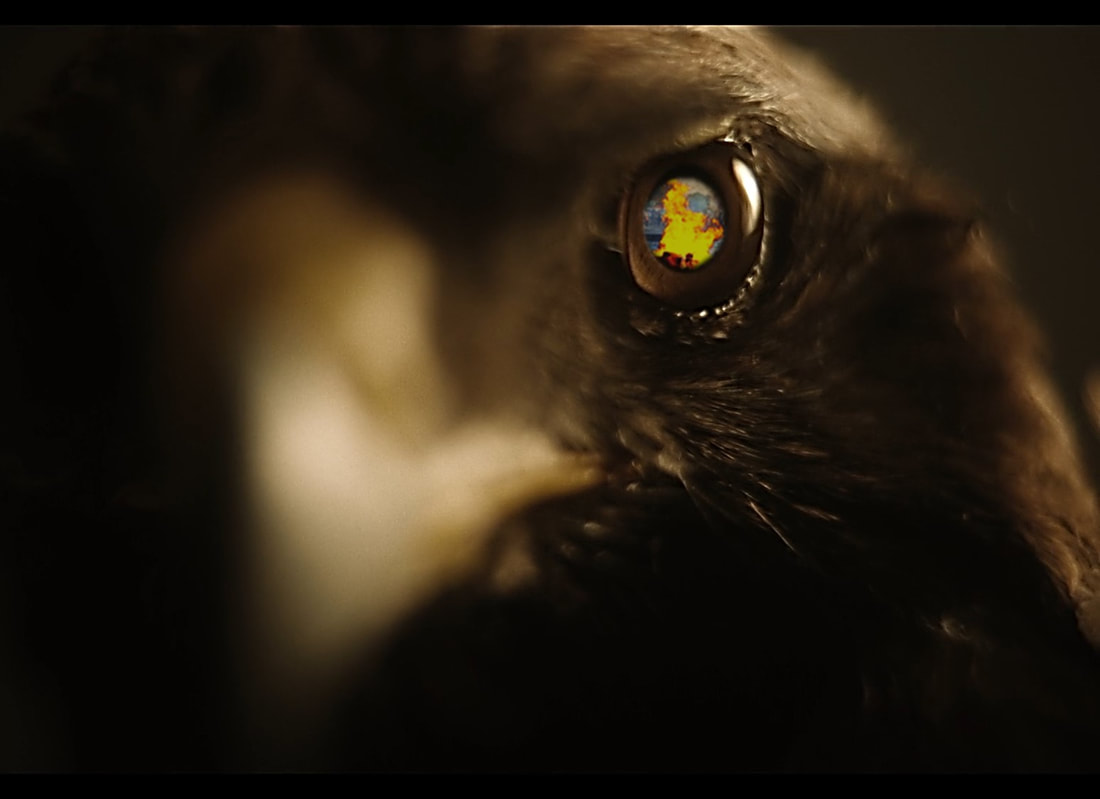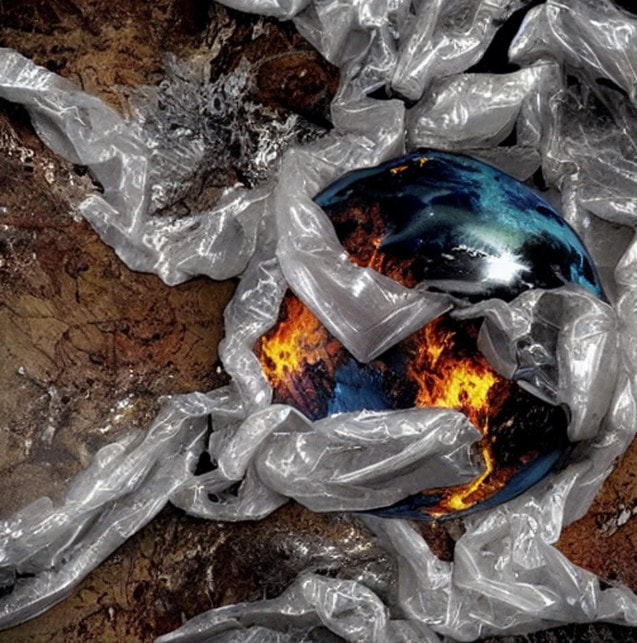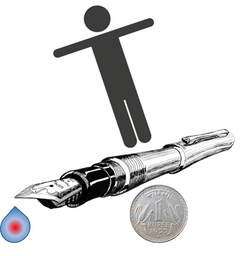|
There is the real game of life for most people, and there is the virtual life of massively multiplayer online gaming that is the only real thing for many. A recent report suggests that gaming will soon be the real thing in life, and everyone would be a gamer. Brent Baldwin, once a gamer himself, fervently hopes this future will not come to pass. In Baldwin's story, “a collection of so many things from my own life”, the gamers in the future are a lost generation, educated but unemployed, living “in a world too expensive and too hot for in-person gatherings.” Yarro, the central character, lives in a bare minimum pod with no kitchen. For Yarro, “the lack of a kitchen meant more room for a fully immersive gaming rig, which was the height of human existence.” He hates to go the place where his dad lives (“Miss you, son”) because he does not want to “endure the sun and the heat outside his pod”. Also, because Yarro doesn’t want to run into anyone “who would pester him about ‘not calling’ or ‘how have you been’ or ‘I’m so sorry about your mom’.” Yet he ends up going there because Sisho, a member of his “posse” had uncharacteristically not logged in for two days. Imagine! A gamer not online! He got to know from a fellow gamer that Sisho was in a hospital near his father’s place. Sisho had almost died from “nutritive failure.” In non-gaming, real-life words, Sisho was so engrossed in the game that he did not pause to eat and had almost starved to death. After leaving the hospital, Yarro goes on to visit his father. Standing in his childhood home, Yarro remembers his parents’ laughter. “How it used to seem so fake, until it was absent. For most of his life, all Yarro had really wanted was to get into a gaming rig and explore other worlds, but for a moment he imagined himself as his Dad, alone day after day. Sisho had the posse waiting for him. With Mom gone, Dad had no one.” Do read Yarro's story and ponder about the future that awaits all of us. A few minutes ago, I came across a scientist’s prediction that technology will make humans immortal by 2030. By 2045, “we will multiply our effective intelligence a billion-fold by merging with the intelligence we have created.” Can we harness some of that artificial intelligence to undo the damage we continue to wreak on the outside? And to restore the fragile love and fraying care within us?
0 Comments
That is one animal which does not feature in this documentary. Yet, its call to heed the elephant in the room is not a whisper but a shriek.
Thanks to the push provided by the Oscar-fuelled social media, I finally saw The Elephant Whisperers a couple of weeks ago. Loved it! Made me relive the only time I had the opportunity to give an elephant a bath, in Dubare Elephant Camp, Coorg. I have always been in love with the gentle giants. Oscar or no Oscar, I would definitely watch the documentary again for Raghu and Ammu, and the beautiful visuals. There are no such beautiful visuals in the documentary I saw a couple of days ago--All That Breathes. No, this is not an attempt to compare the two documentaries. They deal with the same truth we live, but in different ways. While The Elephant left me feeling good, Breathes left me feeling guilty, uneasy. I don’t think I will ever be able to look a bird in the eye after watching Breathes. Let me not spoil your experience of watching it and forming your own impressions. Just think of all that breathes with us on this planet. And somehow surviving in the filth that has become our ecosystem. We struggle to survive even with fellow members of our species. While we orate, shout, fight and burn, who has the time to worry about birds dropping from the sky? How can we possibly keep breathing when we consciously and unconsciously create conditions that make it difficult to our fellow residents to live in health and peace? Kites are using cigarette butts as insect repellents in their nests. Should we applaud their ingenuity or be ashamed by our own self-centred callousness? All That Breathes is set in Ghazipur, where I was some years ago. Then as now, working away in the shadow of the infamous garbage mountain, artisans create pieces of art from waste. Perhaps, there is hope yet? Or should we tell that to the birds? “The earthquake was in Afghanistan,” the old fruit seller said, “but Delhi too was shaken.” He was handing over the second plastic bag my friend had demanded as a backup for the first one bulging with apples and mangoes.
My friend smirked and walked with me to the car. “What did he mean by that?” I asked. “Oh, he is nice but a little mad,” my friend replied. “He does not like it when people ask for plastic bags to carry the stuff they buy from him. He used to plead with everyone to get their own cloth bags. He gave up when people stopped buying from him. Crazy guy!” What does that have got to do with the earthquake? “He keeps lecturing that we are all one. Earth is gifted to us to by God, it seems. We must all protect it or we will be left with no home. As if, if I stop using a few plastic bags, the planet would be saved. Ha!” “I doubt if he is even literate,” my friend continued, “but he talks of climate change. Yes, the very words. Climate is changing because God wants to give us a warning, it seems. This earthquake must have been God shaking his fist … ha, ha, ha!” He was still laughing when I dropped him off before his gate. I think I will carry a bag or two with me from tomorrow. And I will walk all the way. Why bother with a car when I am supposed to be on my morning walk. No, I am not thinking of that crazy old man. But why am I thinking of my baby born last month? You must read if you wish to write. If you are a writer, you must find your reader. You must weigh your words to deliver maximum value. Early lessons.
I started reading early with no ulterior motive. That crept in soon after the professor checked my essay on the college canteen. You are a good writer, she said. Be at it, she advised. She went to on to make me a part of the editorial team of the junior college magazine. I had arrived, I was sure. Then I found myself standing at the college gate pleading with all who entered to take a cyclostyled (yes, that used to be a thing) copy of The Junior Rag. The idea is to find your readers, and for that you must go to them, my teacher had said. All I could find was juniors and seniors alike treating the Rag as just that. For the next few days, I stayed clear of the waste bins and random flying bits of paper. During my year in journalism college, I respectfully approached the instructor. I was carrying a sheaf of painfully typewritten pages. On the pages were words sure to pull readers to the resort I was helping sell. It was my first step into the exotic world of copywriting. He flipped through the pages as if he were looking at some animation. Then he casually transferred the bunch from one hand to the other as if weighing the pages. “you can expect to get …” he mentioned a price, gave me a patronizing pat, handed the pages back dropping some in the process and moved on. More recently I cleared out a huge stack of yellowing newspapers from the attic. Each carried a story with what was once rarely obtained, my byline. Explosive exposures, tearful tales, faithful facts. All by a writer who had, as my boss once put it, “strayed” into journalism. The scrap dealer dumped all the bundles on a large weighing scale, checked the weight and counted out the compensation. No, I did not linger for another backward glance. Today, when yet another potential client asks me to quote my price per word, per page or per hour, I revisit my early lessons. Then I weighed every word because I valued the reader. Now the buyer weighs content that must be optimized to be found. |
AuthorVijayakumar Kotteri Categories
All
Archives
July 2024
|





 RSS Feed
RSS Feed

